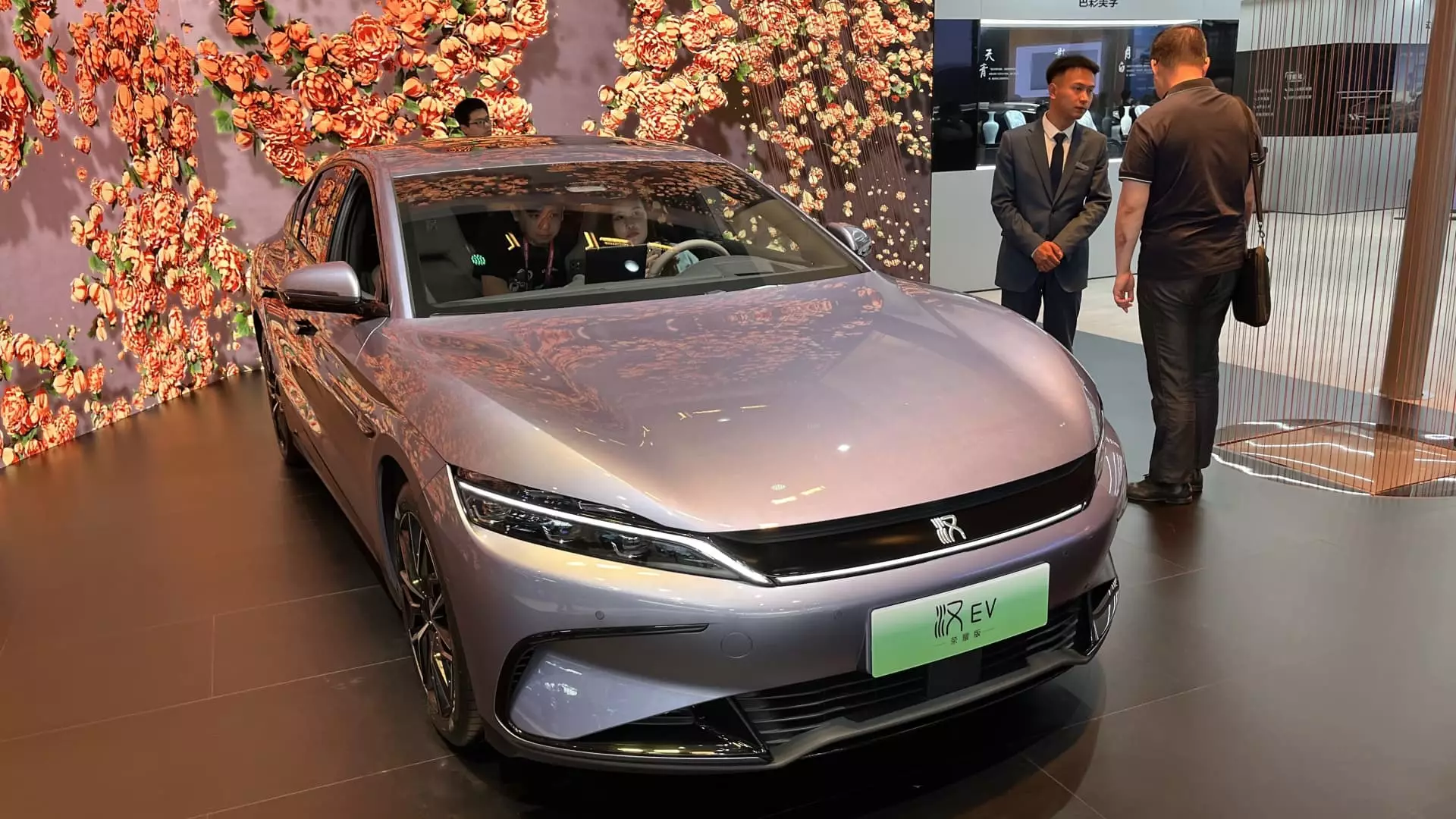The electric car market in China has evolved beyond price competition, according to industry experts. While new U.S. tariffs have added complexity to the market, the focus has shifted towards offering value-driven features to consumers. This shift not only benefits profit margins for companies but also requires them to invest in developing features that cater to consumer preferences. An interesting trend identified by JPMorgan’s survey is the growing preference for panoramic sunroofs among Chinese consumers. More than 80% of respondents indicated a preference for electric vehicles with a panoramic sunroof, willing to pay a premium for this feature.
Despite the high demand for panoramic sunroofs among Chinese consumers, the market for this feature remains largely untapped. Statistics show that only about 12% of cars worldwide, including traditional fuel-powered vehicles, come equipped with panoramic sunroofs. One company poised to benefit from this trend is Fuyao Glass, a major supplier of automotive glass. According to JPMorgan’s report, panoramic sunroofs accounted for about 7% of Fuyao’s total revenue in 2023, highlighting the potential for growth in this segment.
Chinese consumers are increasingly prioritizing content over price when it comes to electric vehicles. JPMorgan’s survey results suggest that customers are willing to pay for the features and technology they desire. This aligns with findings from consulting firm AlixPartners, indicating that Chinese consumers place a higher value on tech features compared to their U.S. and European counterparts. As a result, automakers are focusing on incorporating advanced driver-assist capabilities and in-car entertainment to cater to Chinese consumer preferences.
While features and content play a crucial role in attracting Chinese consumers, battery technology remains at the core of electric cars. A significant portion of survey respondents expressed a willingness to pay a premium for a desirable battery brand, particularly those offering supercharging capabilities. This presents an opportunity for companies like Contemporary Amperex Technology (CATL) to capitalize on the growing demand for fast-charging batteries. Additionally, the rise in preference for hybrid-powered vehicles indicates that not all Chinese consumers are ready to embrace purely electric cars yet.
Brand recognition plays a key role in influencing consumer choices in the Chinese electric car market. According to JPMorgan’s report, BYD has consistently ranked as the top brand favored by consumers in recent years. The company’s production of both hybrid and battery-only cars contributes to its popularity among Chinese consumers. However, new entrants like Xiaomi are gaining traction, challenging established players like Tesla. Despite a slight decline in brand power, the Tesla Model 3 remains the most-desired battery-only car in a specific price range, indicating sustained appeal among Chinese consumers.
The intensifying competition in China’s electric car market has led to a price war among manufacturers. Companies like Nio have responded by releasing lower-priced models to attract budget-conscious consumers. Nio’s introduction of the Onvo L60 SUV at a competitive price point signals a shift in the market dynamics, prompting other players to adjust their pricing strategies. However, Nio’s CEO William Li believes that the era of intense price competition in the electric car market may be coming to an end, as companies focus more on delivering value through innovative features and technology.

